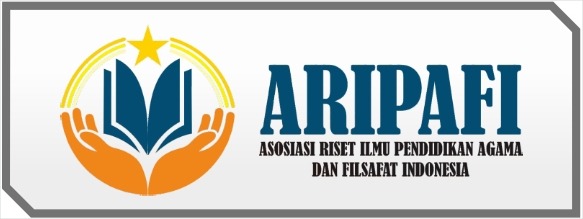Gender, Faith, and Reform: A Narrative Review of Islamic Feminism and Public Policy
DOI:
https://doi.org/10.61194/ijis.v2i2.600Keywords:
Gender In Islam, Islamic Feminism, Qur'anic Interpretation, Gender Justice, Religious Reform, Muslim Women, Inclusive PolicyAbstract
The discourse on gender in Islam has gained increasing scholarly attention due to its profound implications for justice, human rights, and societal development in Muslim-majority contexts. This study aims to examine how Islamic thought has addressed gender through various interpretative approaches and the role of legal, institutional, and political systems in shaping these discourses. Using a narrative review methodology, literature was systematically sourced from major academic databases including JSTOR, Scopus, and Google Scholar. Keywords such as "gender and Islam," "Islamic feminism," and "tafsir and gender" guided the selection of peer-reviewed articles and critical texts. The review reveals a fundamental divide between textualist interpretations that reinforce patriarchal norms and contextualist approaches advocating gender justice. Feminist scholars such as Amina Wadud and Ziba Mir-Hosseini have significantly influenced the reinterpretation of sacred texts, promoting inclusive theological frameworks. Institutions and clerics play dual roles as both agents of change and conservators of tradition, with education emerging as a transformative force. Case studies from Indonesia, Iran, and Morocco illustrate how national legal and political environments mediate the implementation of gender policies. Progressive reforms in Indonesia contrast with the restrictive policies in Iran and gradual reform efforts in Morocco. Findings emphasize the need for gender-sensitive education, inclusive fatwas, and political participation as strategic pathways toward gender justice. The study concludes that collaborative, interdisciplinary, and context-sensitive approaches are essential for transforming gender discourse in Islam and informing inclusive public policy.
References
Ahmad, F., & Rae, J. (2022). Gender dynamics and inclusivity in Muslim communities: A comparative study. Muslim World Journal of Human Rights, 19(2), 134–150. https://doi.org/10.1515/mwjhr-2022-0012
Afsaruddin, A. (2022). Interpreting gender in Islamic tradition: Challenges and opportunities. Journal of Islamic Thought, 33(1), 45–63. https://doi.org/10.1080/14759756.2022.2015473
Al-Kohlani, A. (2018). Islamic education and gender equity in Yemen. Gender and Education, 30(4), 496–510. https://doi.org/10.1080/09540253.2016.1197381 DOI: https://doi.org/10.1080/09540253.2016.1197381
Alatas, S. F. (2023). Reconstructing Islamic feminism: Civil society activism in Malaysia. Asian Journal of Women’s Studies, 29(1), 1–18. https://doi.org/10.1080/12259276.2023.2165452
Bagley, C., Mazumder, R., & Rafiqul, M. (2017). Suicide among young Muslim women in Bangladesh: Implications for feminist scholarship. International Social Work, 60(4), 965–979. https://doi.org/10.1177/0020872815620267
Cader, M. (2015). The development of Qur’anic hermeneutics in modern times. Journal of Qur’anic Studies, 17(2), 22–41. https://doi.org/10.3366/jqs.2015.0190
Carland, S. (2022). Gendered Islamophobia and agency: Muslim women’s voices in Australia. Journal of Intercultural Studies, 43(4), 460–475. https://doi.org/10.1080/07256868.2022.2079800
Duderija, A. (2014). Toward a critical-progressive understanding of Islamic feminism. The Muslim World, 104(3), 284–298. https://doi.org/10.1111/muwo.12061 DOI: https://doi.org/10.1111/muwo.12061
Duderija, A. (2016). Patriarchy and gender-biased interpretations in Islamic exegesis. Islam and Christian–Muslim Relations, 27(2), 129–144. https://doi.org/10.1080/09596410.2016.1140443 DOI: https://doi.org/10.1080/09596410.2016.1186355
Duderija, A. (2020). Contextualizing gender: Progressive hermeneutics in Islam. Journal of Feminist Studies in Religion, 36(1), 23–39. https://doi.org/10.2979/jfemistudreli.36.1.03 DOI: https://doi.org/10.2979/jfemistudreli.36.1.03
Fina, V., & Wahyuni, D. (2022). Reimagining women’s roles in pesantren: A case study from East Java. Indonesian Journal of Gender Studies, 10(2), 87–101. https://doi.org/10.19184/ijgs.v10i2.33524
Firdawaty, F., Nurjanah, S., & Hamid, A. (2023). Revisiting tafsir: Women’s narratives in Islamic scholarship. Journal of Islamic Studies and Culture, 11(1), 34–50. https://doi.org/10.11648/j.jisc.20231101.14
Mar, T., Zahra, S., & Benchikha, L. (2019). Feminist legal reform in North Africa: The case of Tunisia. Middle East Journal of Women’s Studies, 15(2), 210–229. https://doi.org/10.1215/15525864-7559944
Nurmala, N., Suharto, A., & Maimunah, U. (2023). Gender-sensitive tafsir education in Southeast Asia. Qudus International Journal of Islamic Studies, 11(1), 55–71. https://doi.org/10.21043/qijis.v11i1.16275
Patel, R., Ahmed, S., & Ali, Z. (2012). Progressive interpretations of Islam: Bridging faith and gender justice. Gender and Development, 20(3), 423–437. https://doi.org/10.1080/13552074.2012.731747 DOI: https://doi.org/10.1080/13552074.2012.731747
Pitstra, S. (2024). Theological agency and female voice in Islamic contexts. Journal of Religion and Gender, 10(1), 22–39. https://doi.org/10.18352/rg.11782
Qibtiyah, M. (2019). Mapping gender understanding among Muslim students in Indonesia. Indonesian Journal of Islam and Muslim Societies, 9(2), 213–234. https://doi.org/10.18326/ijims.v9i2.213-234
Tariq, M., Hassan, A., & Farooq, R. (2022). Clerical resistance to Islamic gender reform. Contemporary Islam, 16(3), 289–306. https://doi.org/10.1007/s11562-022-00501-w DOI: https://doi.org/10.1007/s11562-022-00501-w
Tavassoli, N., & Teo, T. (2021). Iranian feminism and Islamic orthodoxy: Discursive tensions and transformative strategies. Feminist Review, 128(1), 68–85. https://doi.org/10.1177/01417789211000089
The Oxford Handbook of Islam and Women. (2023). Oxford University Press.
Utsany, H., Kholis, N., & Ramadhan, Y. (2022). Reforming Islamic family law in Indonesia: The influence of Jasser Auda’s thought. Indonesian Journal of Islamic Law, 15(2), 112–130. https://doi.org/10.15408/ijil.v15i2.29570
Yeşildal, H., Gündüz, S., & Demirtaş, M. (2024). The politicization of gender in Muslim societies. Journal of Gender and Politics in the Muslim World, 2(1), 1–19. https://doi.org/10.55596/jgp.2024.201
Zabidi, A. (2018). Legal reasoning and gendered fatwas: Reassessing Islamic jurisprudence. Hawwa: Journal of Women of the Middle East and the Islamic World, 16(2), 142–161. https://doi.org/10.1163/15692086-12341345 DOI: https://doi.org/10.1163/15692086-12341345
Zarkasyi, H., Ma’arif, M. A., & Munif, M. (2023). Collaborative gender reform and Islamic education in Indonesia. Journal of Islamic Educational Reform, 5(2), 77–95. https://doi.org/10.15575/jier.v5i2.17849






